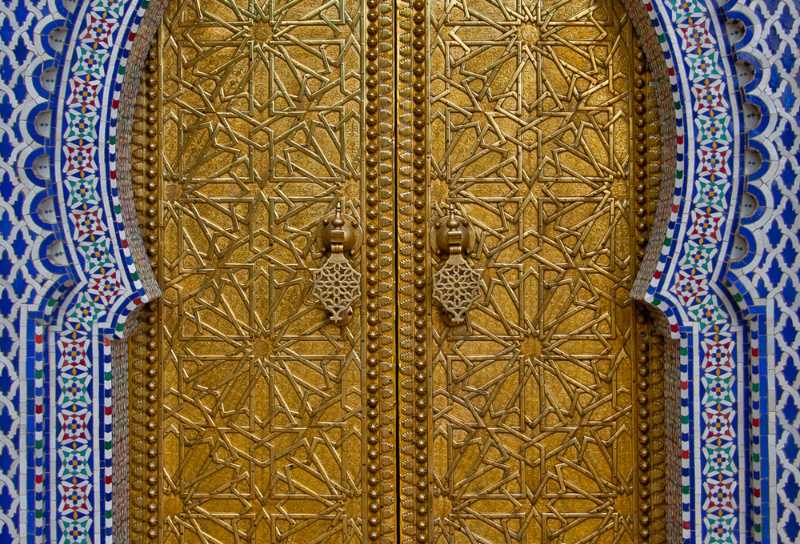
Morocco’s rich linguistic tapestry is a reflection of its cultural diversity and historical heritage.
For Western travelers, understanding the country’s languages is not only practical but also enriches your experience in this North African gem.
Statistics indicate that the majority of Moroccans are bilingual or even trilingual. Most Moroccans are proficient in Moroccan Arabic (Darija), French, and often an indigenous Berber dialect.
This multilingualism is deeply ingrained in Moroccan society, offering travelers a unique opportunity to connect with locals on a deeper level.
When you attempt to speak the local language, even if it’s just a few phrases, you’re not merely communicating; you’re showing respect for Moroccan culture and fostering warm interactions.
Let’s explore Morocco’s languages, starting with the most practical for Western travelers.
French: A Bridge to Morocco’s Heart
Historical Ties: French is widely spoken in Morocco, thanks to its historical ties with France. A significant number of Moroccans can communicate in French, making it a valuable asset for travelers.
Everyday Utility: In major cities like Casablanca and Rabat, you’ll find French-speaking taxi drivers, restaurants with French menus, and educated Moroccans fluent in French, making your journey more accessible.
English: Emerging on Morocco’s Map
Growing Trend: English is gaining ground in Morocco, particularly among the younger generation. Recent data reveals that over 35% of young Moroccans in major cities are either learning or proficient in English.
Tourism Advantage: The tourism industry in Morocco has embraced English, with hotels, tour agencies, and museums often employing English-speaking staff to cater to international visitors.
Note: While English is increasingly common, it may not be prevalent in restaurants or among taxi drivers, so having some basic Arabic or French phrases in your arsenal can be handy.
Spanish in Northern Morocco: A Regional Influence
Northern Spanish Influence: In regions historically influenced by Spain, such as Tetouan and Tangier, Spanish can be quite practical.
Anecdotal evidence suggests that up to 20% of locals in these areas understand and can communicate in Spanish.
Border Benefits: If you plan to cross into Ceuta or Melilla, Spanish becomes even more useful, as these autonomous Spanish cities on Morocco’s northern coast are predominantly Spanish-speaking.
Moroccan Arabic (Darija): The Local Flavor
Distinct Darija: Moroccan Arabic, known as “Darija,” is the heart of communication in Morocco. It is not easily understood by native Arabic speakers from other countries, emphasizing its uniqueness.
Practicality: If you plan to learn Arabic for your trip, focusing on Moroccan Arabic is more practical than Modern Standard Arabic, as it helps you better communicate with Moroccans.
Tamazight: Embracing Indigenous Culture
Berber Heritage: The indigenous Berber people, also known as Amazigh, have preserved their languages in Morocco’s mountainous regions, including the Rif, Middle Atlas, and High Atlas.
Cultural Significance: Attempting to speak local Berber dialects, even if it’s just basic phrases like “please” and “thank you,” is greatly appreciated by the Amazigh people, fostering warm interactions with locals.
Modern Standard Arabic: The Official Language
Language Differences: While Modern Standard Arabic is one of Morocco’s official languages, it is not commonly spoken in daily life. Moroccan Arabic (Darija) is the predominant dialect, with significant regional variations.
Learning Priorities: For travelers interested in learning Arabic, focusing on Moroccan Arabic is more practical and beneficial for day-to-day communication within the country.
While Moroccans generally understand standard Arabic, they are more comfortable conversing in their local tongue.
Ready to Learn Arabic in Morocco? Explore the rich linguistic tapestry of Morocco and start your Arabic language journey. Click here to discover language schools and courses in Morocco.
In conclusion, Morocco’s linguistic diversity is an integral part of its charm. By embracing the country’s languages, you open doors to cultural immersion and authentic experiences.
Whether you’re exploring bustling cities or remote villages, communicating in the local tongue fosters connections and enriches your journey through this captivating land.
FAQ about Languages in Morocco
The official languages of Morocco are Arabic and Amazigh.
Virtually all Moroccans also speak and understand French. Spanish is widespread in northern and southern Morocco
English is becoming more popular in Morocco, especially among younger generations. It is often taught in schools and is seen as important for international communication.
“as-salaam alaykum” for hello
“labass” for how are you
“beslama” for goodbye
“Shukran.” for Thank You